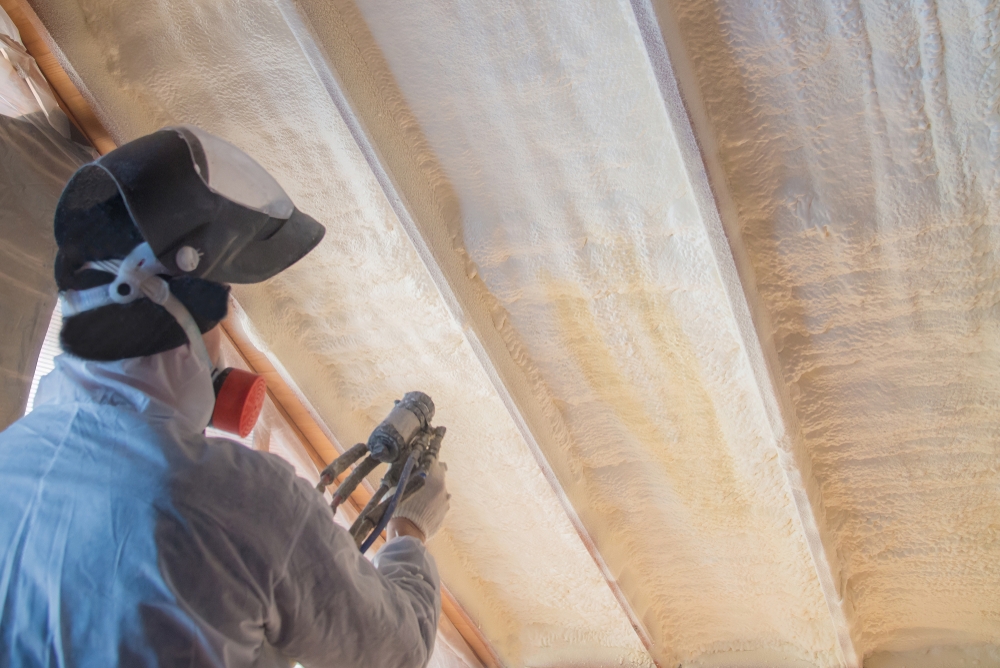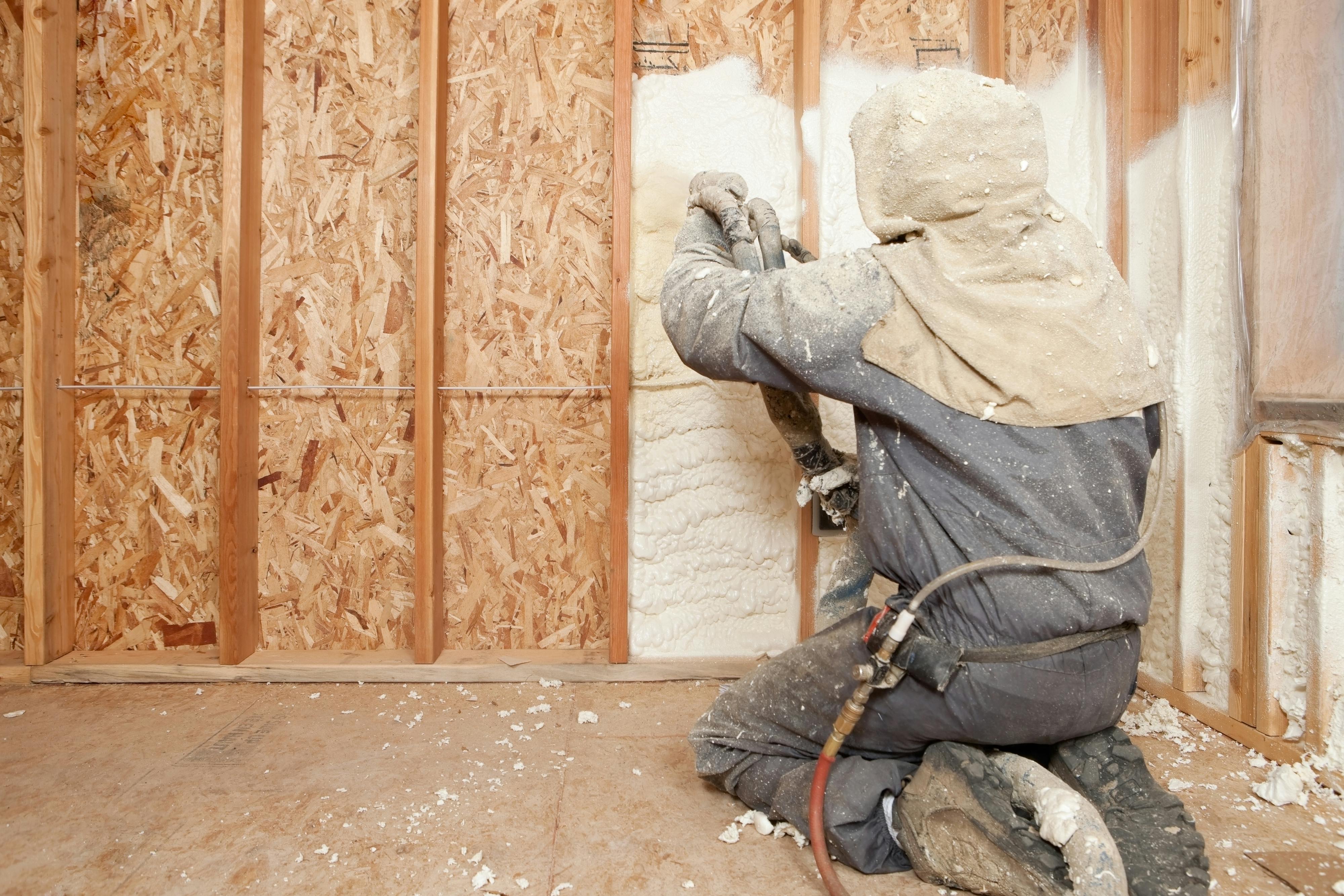Improving energy efficiency with spray foam insulation in Easton homes begins with understanding how insulation works. Spray foam specialists in the region are helping residents and commercial property owners seal energy loss points, stabilize interior temperatures, and lower utility costs through targeted insulation solutions. Unlike traditional insulation methods, spray foam combines air sealing and thermal resistance in one system.
This article explores how insulation specialists apply their knowledge and services to improve building performance in Easton, MD, using spray foam and related materials.
Spray Foam Experts: What Sets Them Apart
Local insulation experts bring more than application skills—they understand Easton's climate, building codes, and construction trends. This combination helps tailor each project for long-term performance.
Advanced Product Knowledge
- Recognize where open cell or closed cell foam performs best
- Select thermal barrier systems based on structure type
- Recommend pairing foam with air sealing or foundation insulation for full enclosure
Job-Specific Planning
Spray foam professionals inspect framing, HVAC proximity, and moisture exposure to define the right installation method. No two properties are insulated the same way, and experts customize every detail.
Efficient Installations
With high-output equipment and trained crews, installation times are reduced without compromising quality. Clean edges, consistent expansion, and proper curing allow better integration with drywall, HVAC, or mechanical components.

Benefits of Working With Spray Foam Professionals
Energy efficiency is the goal, but the benefits of expert insulation extend beyond lower bills.
Controlled Indoor Temperatures
Closed cell foam limits heat transfer and restricts air leaks—creating a more stable interior climate across all seasons.
Reduced Moisture and Mold Risks
By sealing crawlspaces, rim joists, and foundation gaps, foam limits moisture infiltration—a common issue in Easton's coastal-influenced environment.
Sound Dampening
Open cell foam absorbs sound and reduces exterior noise, helping residential properties feel quieter and more comfortable.
Fewer Cold Spots
Spray foam eliminates gaps and compression problems that occur with fiberglass or blown-in products. Even coverage improves heating and cooling system efficiency.
Common Types of Spray Foam Insulation Used in Easton
Not all spray foam behaves the same. Understanding which type fits your structure can improve both performance and cost efficiency.
Open Cell Spray Foam
- Best for interior walls and attics
- Lightweight and permeable to vapor
- Good for soundproofing and moderate thermal resistance
Closed Cell Spray Foam
- Dense and moisture-resistant
- Performs as a vapor barrier
- Adds structural strength—ideal for basements, crawlspaces, and foundations
Hybrid Installations
Experts may combine spray foam with mineral wool, fiberglass, or blown-in materials to match fire ratings or achieve code compliance without over-insulating.
Comparing Spray Foam to Traditional Insulation
Full-Scope Insulation Services in Easton, MD Homes
Peninsula Insulation, LLC offers a complete lineup of services that improve indoor efficiency and meet the structural demands of homes and commercial properties.
Open Cell Spray Foam
Used in attics, walls, and interior partitions for moderate thermal resistance and strong acoustic control. Allows some vapor permeability.
Closed Cell Spray Foam
Dense, rigid foam used in crawlspaces, rim joists, and foundation walls for maximum R-value and moisture control.
Agricultural Insulation
Protects livestock structures, barns, and grow facilities with temperature-stable, moisture-resistant foam coverage.
Residential Insulation
Customized insulation strategies based on building age, materials, and mechanical layout. Targets key heat loss zones.
Commercial Insulation
Designed to meet code standards, fire ratings, and HVAC interaction for office buildings, warehouses, and retail units.
Blown-In Insulation
Loose-fill material ideal for topping up attic coverage or filling inaccessible cavities behind walls.
Fiberglass Insulation
Budget-friendly batts or rolls used in combination with spray foam to meet specific project or code goals.
Mineral Wool Insulation
High-temperature and soundproofing product used in fire-rated assemblies or between multifamily units.
Air Sealing
Comprehensive gap and crack sealing using caulk, foam, and thermal barriers to reduce uncontrolled air movement.
Foundation Insulation
Closed cell foam used to insulate below-grade walls, prevent condensation, and support long-term structural integrity.
New Construction Insulation
Design-phase collaboration to insulate homes or buildings from the ground up—ensuring full enclosure and code compliance.
Thermal Barrier System
Fire-rated protective coatings applied over spray foam to meet IRC and IBC requirements in habitable spaces.
Crawlspace Encapsulation
Seals floors, walls, and vents in crawlspaces using spray foam and vapor barriers to prevent moisture and air entry.
Environmental Considerations of Spray Foam Application
Easton’s proximity to the Chesapeake Bay means property owners must balance insulation performance with environmental awareness.
Reduced Energy Consumption
Properly installed foam significantly lowers HVAC usage, reducing fossil fuel reliance.
Lower Material Waste
Spray foam expands to fill voids, reducing the need for overlapping layers or cut-to-fit materials.
Compatibility With Green Building Codes
Closed cell foam helps builders meet Energy Star and HERS score targets for Easton-area homes.
Myths About Spray Foam Insulation
“It’s Too Expensive for Most Homes”
Spray foam offers a higher upfront cost but delivers lasting value through energy savings, structural support, and reduced maintenance.
“It Can Only Be Used in New Construction”
Retrofits and renovations often benefit more than new builds. Foam can be applied to existing walls, attic floors, and crawlspaces with minimal disruption.
“It Traps Moisture and Causes Mold”
When installed properly, closed cell foam blocks moisture ingress. Professional installation prevents voids that could trap humidity.
How Spray Foam Experts Ensure Long-Term Performance
Trained foam teams ensure better long-term outcomes by using precision application, post-install inspection, and humidity monitoring.
Quality Assurance
Installers verify foam depth, adhesion, and cure using thermal imaging and depth probes.
Long-Term Compatibility
Spray foam interacts well with HVAC systems, electrical, and plumbing lines when applied by experienced professionals who anticipate future access needs.
Conclusion
Spray foam experts in Easton bring more than materials—they bring expertise, precision, and results. By applying the right foam products in the right places, they help homeowners and property managers reduce energy bills, avoid mold problems, and protect building value. Choosing a local expert ensures the installation is matched to regional climate and building types.
Ready to Achieve Energy-Efficient Indoor Performance?
Efficient insulation improves air quality, interior comfort, and structural value over time. Peninsula Insulation, LLC works directly with Easton property owners to design solutions that perform well year-round.
Call (410) 770-2624 or email [email protected] to schedule a property evaluation.
FAQs
How long does spray foam insulation last in residential buildings? Properly installed spray foam insulation lasts over 30 years. It does not sag, compress, or deteriorate like fiberglass or cellulose.
Is spray foam safe for indoor air quality? Once cured, spray foam is inert and does not off-gas. Professional application ensures safe curing and ventilation during installation.
Can spray foam insulation help reduce noise? Open cell foam significantly reduces airborne noise. It’s often used in home offices, media rooms, and multifamily walls.
Is closed cell foam waterproof? Closed cell foam resists water penetration and adds a vapor barrier, making it suitable for foundations, crawlspaces, and flood-prone areas.
What makes spray foam more efficient than traditional insulation? Spray foam air-seals and insulates in one application, minimizing thermal bridging and uncontrolled airflow that degrade performance in batts or blown-in products.
Author: Wil Perkins is the founder of Peninsula Insulation and a long-time resident of Easton, Maryland. With a hands-on approach and nearly five years in the insulation business, Wil leads a team known for professional service and quality work. He’s committed to providing best Spray Foam Insulation solutions and lasting results for every project.
Reviewer: Emily Martinez has 12 years of experience in spray foam insulation. She reviewed this article and suggested ways to make the content more useful for contractors looking to grow their customer base.





Comments